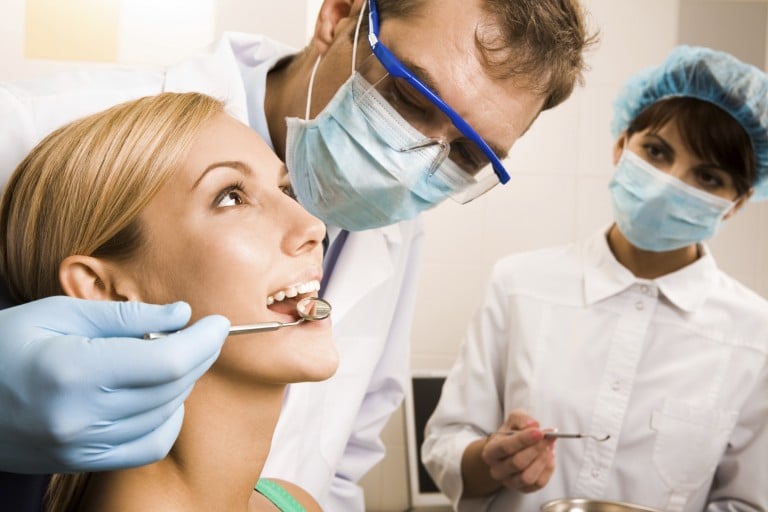Your tongue is covered with hundreds of tiny papilla. Sometimes, that papilla can become irritated, swollen, or overgrown. When they do, they tend to accumulate buildup within them, causing discoloration and sometimes a “white tongue.” Fortunately, a white tongue is usually not anything to be alarmed about. However, it could be a sign that there is an issue that needs to be addressed.
Here are some of the most common causes of a white tongue:
Thrush
This yeast infection occurs when the natural flora of your mouth is thrown off. It can cause a fungal infection and sore areas throughout your mouth — not just your tongue. Risk factors that may predispose you to develop thrush include anaemia, antibiotic use, diabetes, and wearing dentures.
Poor Oral Hygiene
In addition to brushing and flossing, you should be cleaning your tongue each day. Use a soft toothbrush and brush from the back of your tongue, forward. Or purchase a tongue scraper at the drugstore and clean your tongue from front to back. Scrapers usually remove more buildup. You will likely be surprised at how much visible residue is removed during the process.
If you currently suffer from gingivitis or periodontal disease, take note. The higher bacteria levels inside of your mouth may be causing the white tongue condition and your infected gums to play against one another. It is important to clean all areas of your mouth regularly.
Alcohol and Tobacco Use
Most people see a darker discoloration on their tongues from tobacco use, but others can see a white color. Drinking alcohol and smoking are both common causes of developing a white tongue. It can take some time after quitting before you start to notice the pink hue return to your tongue.
Digestive Health Problems
A thick coating across your tongue may mean that your digestive system is suffering from bacterial overgrowth and changes in gut flora. Let your doctor know if you suffer from intestinal issues. Some people find that adding probiotics into their diet can help them to better manage their digestive concerns. Others, however, require medical care.
Dry Mouth, Dehydration, and Mouth Breathing
Some people develop white tongues when they are dehydrated. Mouth breathing can also cause a dry oral environment, leading to the white appearance. If you suffer from xerostomia (dry mouth), take care to avoid mouth rinses that contain alcohol, as it can make the condition worse. Increase your water intake during the day to keep your mouth lubricated.
Side Effect of Medications
Many prescription and over the counter medications can impact your mouth. Dry mouth is probably one of the most common side-effects, and this consequently can lead to a white tongue. Some of the most common medications to see this with include antihistamines, decongestants, steroids, and antidepressants.
Geographic Tongue
Stick your tongue out and look in the mirror. Does it look like a map, with little continents or islands drawn across the surface? Do white borders circle around areas of raw, red surfaces? This common ailment is known as geography tongue. Although the cause isn’t certain, it usually does not harm the person affected by it.
Illnesses and Diseases
In more serious situations, areas of white patches could be indicative of diseases like oral cancer, heart disease, syphilis, or HIV/AIDS. If you notice irregular white marks on your tongue, seek the care of a dentist right away. He or she can provide a comprehensive exam and screening to rule out any possible concerns and, if necessary, refer you to an oral surgeon for further care.
Most of these white tongue conditions have other symptoms that go alongside them. During your dental checkup, be sure to disclose any medications that you are currently taking or health conditions that you have been diagnosed with. Your dentist can fit the pieces of the puzzle together, and along with examining your mouth, he or she can better guide you on how to appropriately treat your white tongue problem.
If dental care seems out of your budget, contact Aetna Dental Offers. Dental savings plans can cut your dental costs by 10% to 50%. Find out more about how our plans can save you money – and help optimize your health – now!
